Irene Kurka - Violeta Dinescu: Trajektorie (2022) Hi-Res
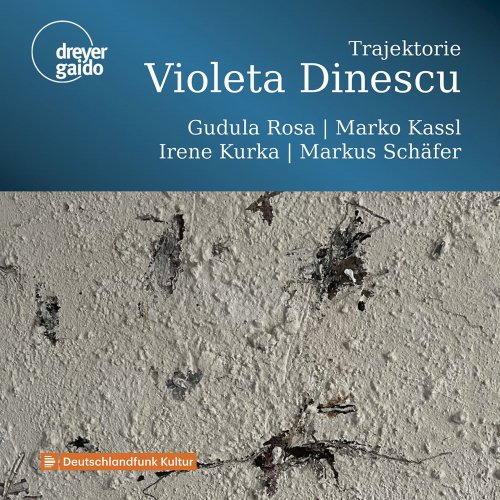
Artist: Gudula Rosa, Marko Kassl, Irene Kurka, Markus Schäfer
Title: Violeta Dinescu: Trajektorie
Year Of Release: 2022
Label: Dreyer Gaido
Genre: Classical
Quality: FLAC (tracks) / FLAC 24 Bit (44,1 KHz / tracks)
Total Time: 71:17 min
Total Size: 277 / 633 MB
WebSite: Album Preview
Tracklist:Title: Violeta Dinescu: Trajektorie
Year Of Release: 2022
Label: Dreyer Gaido
Genre: Classical
Quality: FLAC (tracks) / FLAC 24 Bit (44,1 KHz / tracks)
Total Time: 71:17 min
Total Size: 277 / 633 MB
WebSite: Album Preview
1. I. —
2. II. —
3. III. —
4. Immaginabile
5. I. —
6. II. —
7. III. —
8. IV. —
9. V. —
10. VI. —
11. VII. —
12. VIII. —
13. IX. —
14. X. —
15. XI. —
16. Mein Auge ist zu allen sieben Sphären zurückgekehrt
The Romanian composer Violeta Dinescu (*1953) is undoubtedly one of the most distinguished female composers in Europe. She has lived and worked in Germany since 1982 (including from 1996-2021 as Professor of Applied Composition at the Carl von Ossietzky University in Oldenburg). The chamber music works recorded here in various instrumentations cover the creative period from 1993-2018.
Almost 1000 years separate Hildegard's work and Violeta Dinescu's three movement composition In Lingua ignota. Hommage à Hil¬degard von Bingen for Accordion con voce ad libitum from 2015. What links the two composers is the experimental script Lingua ignota, an unknown lan¬guage, which Hildegard developed, consisting of about 1000 foreign-sounding words, as well as words she invented herself. Hildegard's list begins with Aigonz, the word for God, and ends with Cainz, the word for the cicada. Between these two words all areas of ecclesiastical and secular life are dealt with. All the words are nouns and they are all pronounceable.
The Croatian accordion player Mirjana Petercol, who for a long time now has been examining the connection between contemporary and medieval music, suggested that Dinescu look at the Lingua ignota as the basis for a composition. Petercol sent her a selection of Hildegard's words and Dinescu wrote her composition, which was given its first performance by Petercol.
For this album Immaginabile was supplemented by a second 'voice', which, as in a canon, retains the same melody, but is played at a slightly altered tempo and with a different agogic. It is the coexistence of a melody and a variant. This heterophony as a way of making music between unisono and polyphony appears in many differing guises in the traditional music of southeast Europe. In Immaginabile the entrance of the second 'voice' begins on a diamond-headed note G# (see music example), which signifies the tonal centre and the start of a new level in the composition. Thus, two versions exist, as Dinescu explains: "For the original version with only one recorder a creative interpretation is important in order to realize an elasticity of the melodic contour. The duo version opens up more possibilities to create a more complex discursive per¬formance." She compares the relationship of the two voices to one another with a picture: "The first voice is like a cloud which is clearly visible in the sky. As a resonance to it another cloud follows it on the horizon."
Gudula Rosa, recorder
Marko Kassl, accordion
Irene Kurka, soprano
Markus Schäfer, tenor
Almost 1000 years separate Hildegard's work and Violeta Dinescu's three movement composition In Lingua ignota. Hommage à Hil¬degard von Bingen for Accordion con voce ad libitum from 2015. What links the two composers is the experimental script Lingua ignota, an unknown lan¬guage, which Hildegard developed, consisting of about 1000 foreign-sounding words, as well as words she invented herself. Hildegard's list begins with Aigonz, the word for God, and ends with Cainz, the word for the cicada. Between these two words all areas of ecclesiastical and secular life are dealt with. All the words are nouns and they are all pronounceable.
The Croatian accordion player Mirjana Petercol, who for a long time now has been examining the connection between contemporary and medieval music, suggested that Dinescu look at the Lingua ignota as the basis for a composition. Petercol sent her a selection of Hildegard's words and Dinescu wrote her composition, which was given its first performance by Petercol.
For this album Immaginabile was supplemented by a second 'voice', which, as in a canon, retains the same melody, but is played at a slightly altered tempo and with a different agogic. It is the coexistence of a melody and a variant. This heterophony as a way of making music between unisono and polyphony appears in many differing guises in the traditional music of southeast Europe. In Immaginabile the entrance of the second 'voice' begins on a diamond-headed note G# (see music example), which signifies the tonal centre and the start of a new level in the composition. Thus, two versions exist, as Dinescu explains: "For the original version with only one recorder a creative interpretation is important in order to realize an elasticity of the melodic contour. The duo version opens up more possibilities to create a more complex discursive per¬formance." She compares the relationship of the two voices to one another with a picture: "The first voice is like a cloud which is clearly visible in the sky. As a resonance to it another cloud follows it on the horizon."
Gudula Rosa, recorder
Marko Kassl, accordion
Irene Kurka, soprano
Markus Schäfer, tenor
![Frank Sinatra, Count Basie - It Might As Well Be Swing (1964) [2021 SACD] Frank Sinatra, Count Basie - It Might As Well Be Swing (1964) [2021 SACD]](https://www.dibpic.com/uploads/posts/2025-12/1766090910_scan-1.jpeg)
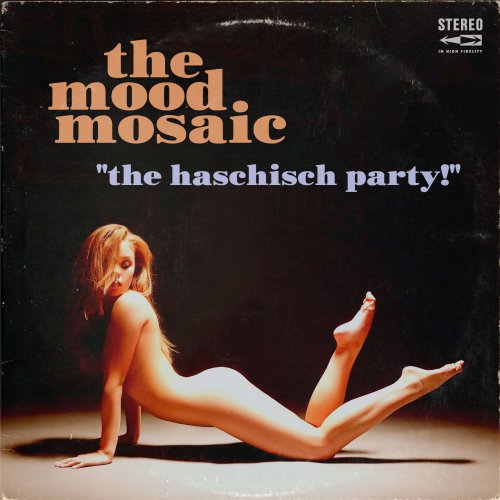
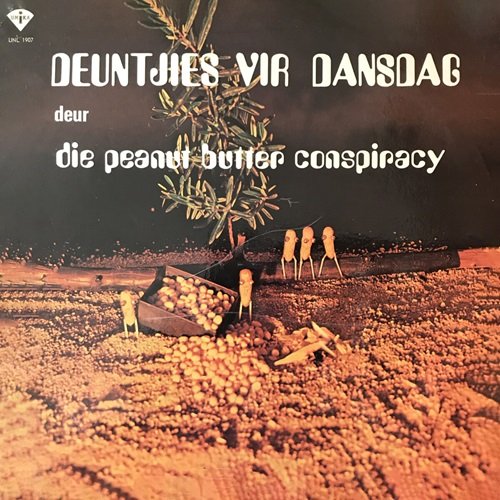
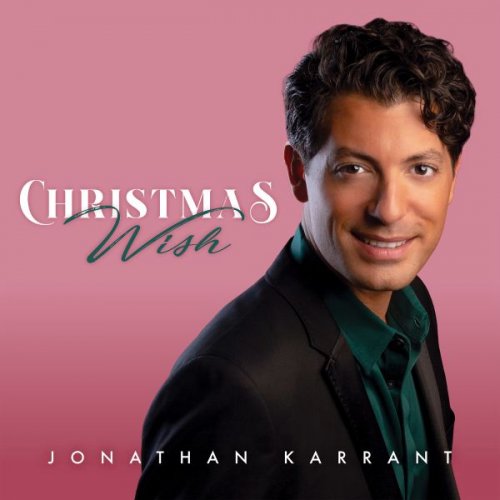
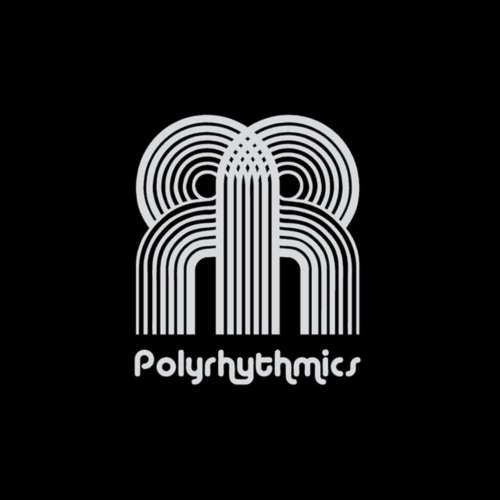
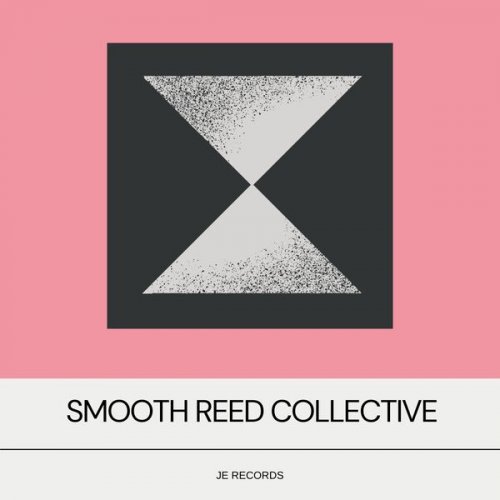
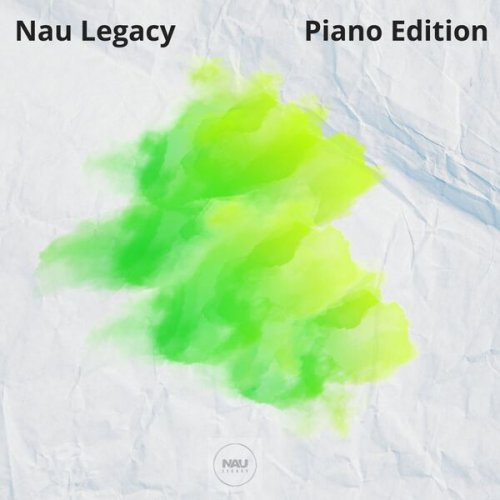
![The Baroque Jazz Ensemble - The Baroque Jazz Ensemble (feat. Ira Schulman) (2025) [Hi-Res] The Baroque Jazz Ensemble - The Baroque Jazz Ensemble (feat. Ira Schulman) (2025) [Hi-Res]](https://img.israbox.com/img/2025-12/19/yehoqbmzkuwk180c26lz85clx.jpg)
![Grises - Eveil (2025) [Hi-Res] Grises - Eveil (2025) [Hi-Res]](https://www.dibpic.com/uploads/posts/2025-12/1766127968_cover.jpg)